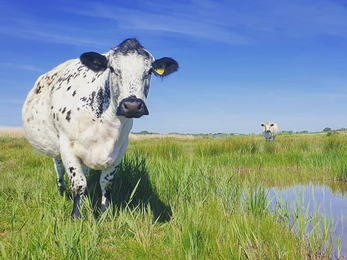Weekly wild news from our reserves - 23 October
Grass of Parnassus at Thelnetham Fen - Debs Crawford
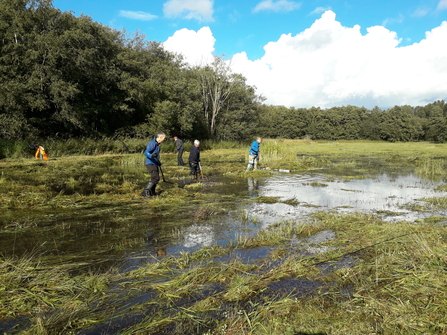
Our volunteer team cutting and clearing a very wet Thelnetham Fen – Debs Crawford
“These ‘oh so wet’ photos are taken at Thelnetham Fen in north Suffolk. We wouldn’t normally see this much water until mid-winter which has made our cutting and clearing task very challenging, on top of having a reduced volunteer team – but we have done it and finished! The flower pictured here is the 'grass of Parnassus', also known as ‘bog star’. It is a late flowering plant, found in wetlands and in decline in southern UK. It hasn’t been recorded at Thelnetham Fen since 2012, so it was especially nice to see its cheer once again as the darkening clouds gathered overhead. Nearby Market Weston Fen always has a great display of this beauty, which is one of my favourites."
"The basis of fen meadow management is an annual cutting regime to maintain the rich fen flora diversity. It is an incredibly physical time of year on the fens, taking 5-7 weeks to complete all the management on the inland fen nature reserve cluster. This would not be possible without stalwart help from our fantastic volunteer team - thank you. Now the hard work is done, I encourage you all to plan a visit in June/July next year when a stunning orchid cascade and rich floral carpet will be readily on display.” - Debs Crawford, Valley Fens Assistant Warden.
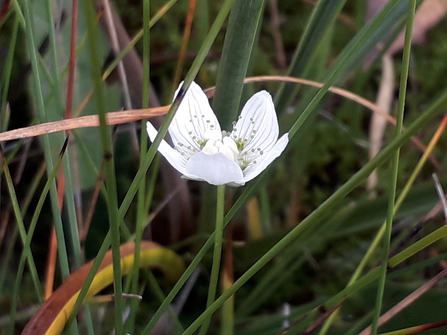
Grass of Parnassus at Thelnetham Fen - Debs Crawford
Starling murmuration at Hen Reedbeds
Tens of thousands of starlings have been displaying at Hen Reedbeds this week. For the best chance of seeing the murmuration, visit just before dusk and view from the river wall at Wolsey Creek on the estuary side of the road. Enjoy!
Heathland management at Blaxhall Common
Our volunteer team have also been busy this week clearing scrub at Blaxhall Common. While scrub is valuable wildlife habitat in itself, scrub clearance is essential to maintain the open, heathland habitat, and the resulting bare ground is great for invertebrates, like this minotaur beetle.
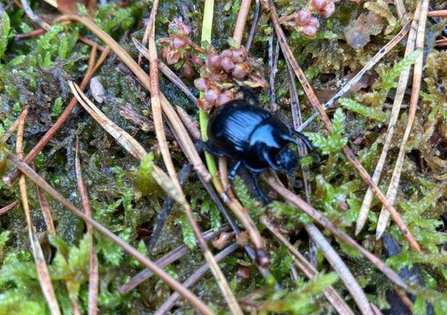
Minotaur beetle at Blaxhall Common - Ben Calvesbert
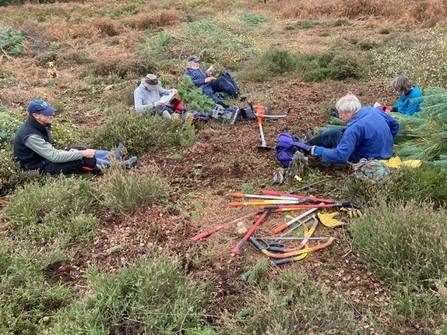
Our volunteers take a well-earned socially distanced tea break!
Our conservation grazers move to pastures new
This week our British white cattle were moved from Hen Reedbeds to Church Farm for the winter months. The belted Galloways which currently graze at Trimley Marshes will also be moved soon, as overwintering geese take over the winter grazing.



